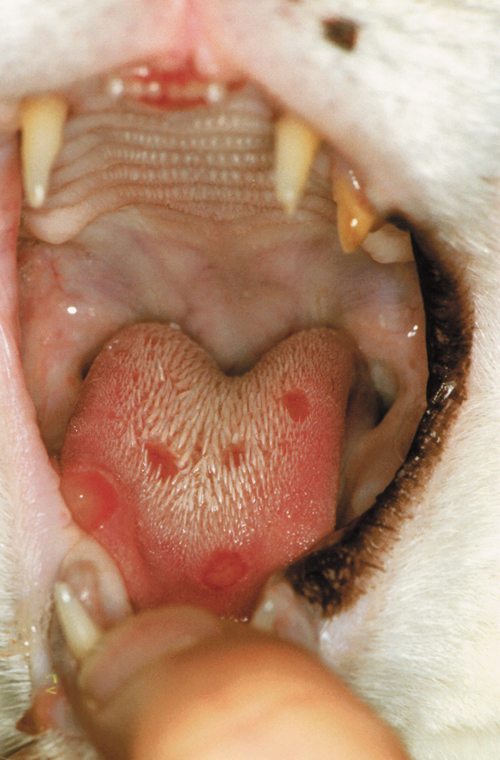Difference between revisions of "Feline Medicine Q&A 10"
Jump to navigation
Jump to search
Ggaitskell (talk | contribs) |
|||
| Line 1: | Line 1: | ||
{{Template:Manson Sparkes}} | {{Template:Manson Sparkes}} | ||
| − | [[Image:|centre|500px]] | + | [[Image:Feline Medicine 10.jpg|centre|500px]] |
<br /> | <br /> | ||
Latest revision as of 11:52, 25 August 2011
| This question was provided by Manson Publishing as part of the OVAL Project. See more Feline Medicine questions |
A 5-year-old DSH cat is presented which has been depressed, anorexic, and showing upper respiratory tract signs (sneezing, nasal discharge) for the last 2 days. On clinical examination, the cat is pyrexic and has several small lingual ulcers.
| Question | Answer | Article | |
| What is the most likely diagnosis? | The acute onset of clinical signs and pyrexia are suggestive of an infectious cause, therefore cat ‘flu’ is the most likely diagnosis. |
Link to Article | |
| What are the most likely causal infectious agents? | FHV and FCV are the most likely causal agents. FCV is more frequently associated with tongue ulcers although both viruses can cause all of the signs described in this case. |
Link to Article | |
| What treatment is recommended? | Supportive care of the individual cat is a priority and may include:
|
Link to Article | |
| How can this illness be explained in a fully vaccinated cat? | No vaccine offers 100% protection and potential causes of ‘vaccine failure’ include:
|
Link to Article | |
